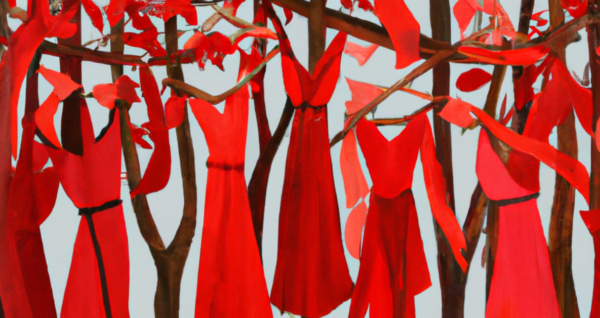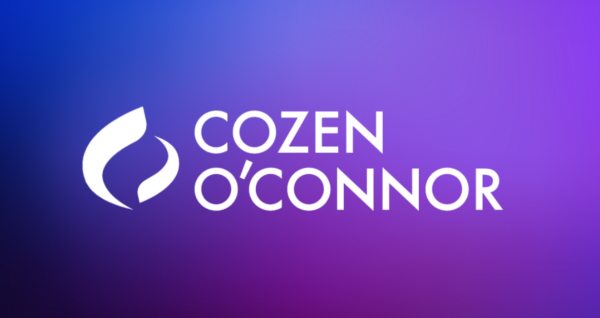From almost nonexistent media attention to jurisdictional neglect, Indigenous victims of gender-based violence are often overlooked despite being grossly overrepresented as victims of violence.
Molly Simons is an Institutional Giving Intern at Sanctuary for Families. A senior at Trinity College, she is writing a thesis about violence against Indigenous women. ________________________________________________________________________________
While only referencing the U.S., this blog post will use Indigenous to refer to American Indian and Alaska Native (AI/AN) communities and members.
Sometime before 2016, a young Indigenous woman—let’s call her Rose—was strangled by her husband (for various reasons involving the privacy of victims and minors, the woman’s name and age remain confidential.) Rose was an enrolled member of the Yaqui Tribe of Arizona; her husband, Frank Jaimez, was 19 years old and non-Indigenous. Frank was prosecuted for the strangling and convicted of a crime, but he still returned to the house with Rose. And the abuse continued (ADI).
Indigenous women (and two-spirit people) are grossly overrepresented as victims of violence
Frank’s abuse toward Rose reflects a larger historical trend of violence against Indigenous people that stems from an invasion of Indigenous space—both Indigenous land and bodies. In particular, Indigenous women and other gender and sexual minorities are grossly overrepresented as victims of violence.
Rose is part of the more than 4 in 5 Indigenous women who have experienced violence in their lifetime, and the scale of this problem is immense: over 5,700 Indigenous women and girls are considered to be missing or murdered. Over half of Indigenous women have also reported experiencing sexual violence in their lifetime, 96 percent of which has been at the hands of non-Indigenous perpetrators. And these statistics are deadly—for Indigenous women and girls, the homicide rate is over six times higher than it is for their white counterparts.
Similarly to Rose, more than half of Indigenous women have experienced physical violence by intimate partners in their lifetime. Again, these statistics are fatal. Indigenous women victims of intimate partner violence lose an average of 38.3 potential years of life per death in a study of 16 states.
Indigenous people who identify as two-spirit, a blanket term often used to describe queer and LGBTQ+ Indigenous people, similarly face heightened levels of violence. One recent report found that nearly all participants who identified as two-spirit had experienced sexual assault, with almost 90% experiencing two or more forms of violence.
These statistics are staggering and yet still relatively unknown to the public.
This is because Indigenous women are at the crossroads of oversight
From almost nonexistent media attention to jurisdictional neglect, Indigenous women who experience violence are often overlooked and left to advocate for themselves and their family members and friends alone.
According to a report released by the Urban Indian Health Institute in 2017, of about 500 cases of murdered Indigenous women and two-spirit people, 95 percent were not covered by national or international media. Media response is drastically different for missing and murdered people of other races, especially missing upper and middle-class white women and girls whose stories often garner the attention of the nation.
Jurisdictional oversight continues to plague federal and state court systems that should assist Indigenous women in winning convictions over their abusers, many of whom are not Indigenous. This oversight is a lasting impact of a 1978 decision in which the Supreme Court held that tribal courts had lost the authority to try non-Indigenous perpetrators when the tribes had become dependents of the United States. As a result, many crimes against Indigenous women simply went unprosecuted. Tribal courts often lacked the resources to try non-Indigenous people, and the federal government often lacked the resolve to pick up those cases, so Indigenous communities became playgrounds for crime and violence.
Steps in the right direction
In September 2016, Frank Jaimez, the defendant from above, came home to find that Rose had propped the door to their house open, waiting for her daughter to come home. Frank demanded that Rose close the door, and the couple began arguing. During that argument, Frank picked up Rose’s property and smashed it on the ground. Fearful, Rose called the tribal police, who arrested Frank. This time, Frank was not only prosecuted, he was sent to prison by the Pascua Yaqui tribal court (ADI).
Until 2013 and the Reauthorization of the Violence Against Women Act (VAWA), that prosecution in tribal court would not have been possible. But after advocacy from Indigenous activists, VAWA 2013 authorized tribal courts to prosecute domestic violence cases even when the abuser was a non-Indigenous person.
In the legal sphere, this increase of jurisdiction is crucial to helping women like Rose, but media attention for missing and murdered Indigenous women and girls still falls short of adequate.
Thus, Indigenous advocates have turned to visual activism
The REDress Project by artist Jamie Black calls attention to the ongoing crisis of violence against Indigenous women. Black, a Métis and Finnish artist committed to raising awareness of the Movement for Missing and Murdered Indigenous Women, created a display showing empty red dresses hung from tree branches. The REDress Project garnered attention, and the movement grew, expanding to most of North America. This display of red dresses of all shapes and sizes hung in the trees has become a recognizable symbol in the fight against violence.
Another distinct symbol in the fight against violence against Indigenous women is a red handprint painted over the mouth. Seen first on Boston marathon competitor Jordan Marie Brings Three White Horses Daniel (Kul Wicasa Oyate, Lower Brule Sioux Tribe), she painted the red handprint on her face to “break the silence of the violence happening on our Indigenous womxn and peoples“. The red handprint has gained recognition and has now been featured on billboard campaigns and in the first season of Canada’s Drag Race.
The fight continues
There is much to be done to continue the work of this political and artistic activism. Subsequent VAWA reauthorizations have awarded expanded jurisdiction to tribal courts, but there are still restrictions that infringe on tribal courts effectiveness.
Working to further these expansions through state government is LT. Governor Peggy Flanagan (White Earth Band of Ojibwe) of Minnesota. Flanagan recognizes that the necessity for electing Indigenous women and people to positions of power saying, “When we are at the table, the conversations change“. These conversations have helped turn attention and resources to the issue, highlighting the need for more Indigenous women and people in power.
A continual push from both Indigenous activists and non-Indigenous people can emphasize the importance of expanded jurisdiction. Promoting and talking with Indigenous activists, as well as calling members of Congress, are all ways to amplify Indigenous voices and issues.
Indigenous space has long been infringed upon, but continued legislative advocacy and visual activism will help tribes in their fight to regain long overdue jurisdiction and sovereignty.
You are not alone
For Indigenous-centered resources:
- StrongHearts Native Helpline (a partnership between the National Domestic Violence Hotline and the National Indigenous Women’s Resource Center)
- 1-844-7NATIVE
- National Indigenous Womens Resource Center
If you or someone you know is experiencing abuse, please do not hesitate to reach out to us for help. Sanctuary’s services are free and available to all survivors living in New York City, regardless of gender, sexual orientation, age, disability, marital or immigration status.
Our services include:



